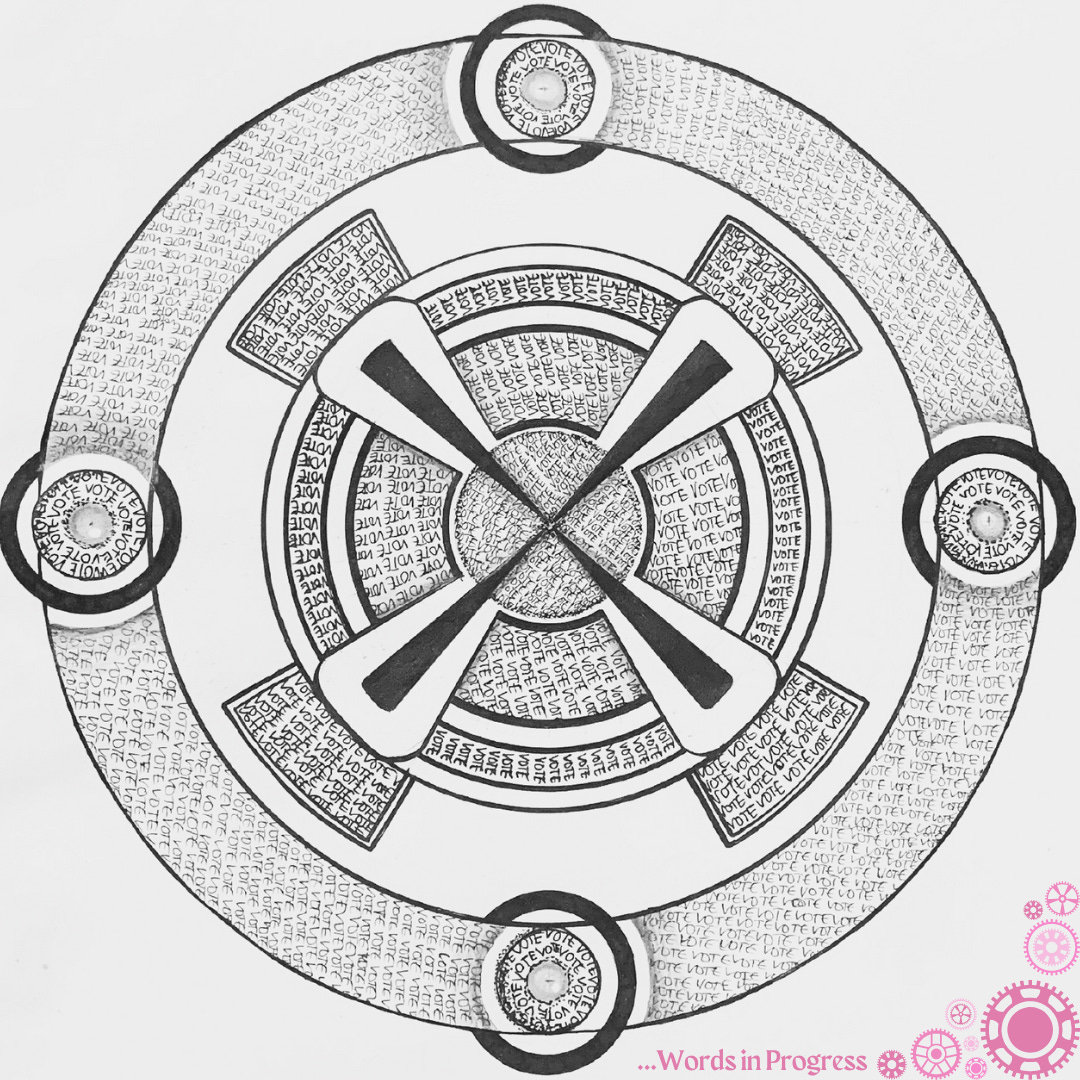Why these two lines are the most powerful
It's a big year for democracy, and these two lines hold the key.
It’s surprising how powerful two lines can be.
They aren’t even parallel.
They go across each other at the midpoint.
And they mark our power as people.
You know - the people who can vote.
I wanted to capture the importance of this mark for my art submission to the Voting Schmoting show, being held at Inky Fingers (Hackney) in March.
‘X’ marks the spot.
This mark represents our approval as well as the legitimate call to action for the leaders we choose.
It is also a tangible example of how we explain the basis of a democracy.
I mean, there are multiple ways in which a healthy democracy can function.
I still maintain the unelected Upper Chamber is a good thing for our Parliamentary Democracy here in the UK, as it is able to bring stringent expertise and accountability to those of whom we elect in the Commons.
And stops them from becoming dictators.
But nothing can take away from the feeling we have for elections.
That’s at the top of the democracy hierarchy.
The term ‘democracy’ originates from the Greek words ‘demos’, meaning ‘people’ and ‘kratos’ meaning ‘rule’ or ‘power’
Thus the word means ‘rule by the people’.
The concept of democracy emerged in the city-state of Athens in the 5th century BCE.
And despite being considered its birthplace, the form of democracy practised there was quite different to the modern versions we see today.
In ancient Athens, citizens participated directly in decision-making processes, gathering in assemblies to vote on laws and policies.
Modern democracies moved towards a more representative form of decision-making.
But we still held onto the ultimate aspect - the power to choose who makes decisions on our behalf.
2024 is a big year for the two-line mark of democracy.
It is estimated that approximately 2 billion people across 50 countries will go to the polls this year, including the US, India and the (very exhausted) UK.
Here in the UK, the mark of X will give our selected Parliamentary candidates and Party the mandate it needs to make decisions for the next five years.
Up until that point the parties will have tried their hardest to sell you the dream.
The better life, the societal commitments in terms of health, wealth and education, and corporate tax breaks so a company would invest in the country.
We’re already being hit with election leaflets and mudslinging between parties on their social media accounts.
All having the ultimate hope to gain our vote.
But where did the word ‘vote’ actually come from?
The term ‘vote’ has its roots in Latin.
It stems from the root word ‘votum’, which means ‘a vow’ or ‘a wish’.
In ancient Rome, ‘votum’ referred to a solemn promise or dedication made to a deity in exchange for a desired outcome.
Over time, the meaning of ‘votum’ expanded to include expressions of approval or disapproval in matters of decision-making.
Thus, it has kept its original concept around the people having power to choose.
Voting is very important to me personally as a woman.
The Suffragette movement did all it could so that I could moan about the quality of leadership in today’s age, and actually do something about it with my ability to mark the ballot with an X.
We are lucky to have the system we do (albeit we can always seek improvements).
The power I have to choose is something I don’t take for granted.
And so, I would never miss the opportunity to cast my vote because it’s an important privilege given to me by the efforts of the women who came before - some of whom sacrificed their lives for the cause.
But most importantly, it keeps the sanctity of democracy - the people’s power - alive.





Amen!